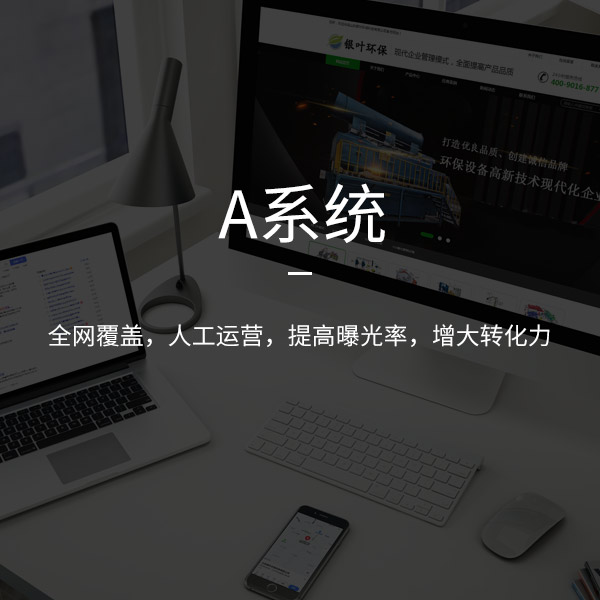

作者:創(chuàng)始人 更新時(shí)間:2025-06-13 16:10:45
山東愛(ài)采購(gòu)運(yùn)營(yíng)關(guān)鍵詞布局策略:精準(zhǔn)觸達(dá)與流量增長(zhǎng)的雙輪驅(qū)動(dòng)
2025-06-13 16:10:45 分享 瀏覽次數(shù):0次
在B2B電商領(lǐng)域,關(guān)鍵詞布局是連接買家需求與商品供給的“數(shù)字橋梁”。針對(duì)山東地區(qū)企業(yè)運(yùn)營(yíng)愛(ài)采購(gòu)平臺(tái)的需求,需構(gòu)建一套以“買家需求洞察”為核心、以“場(chǎng)景化覆蓋”為路徑、以“動(dòng)態(tài)優(yōu)化”為保障的關(guān)鍵詞策略體系。
In the field of B2B e-commerce, keyword layout is the "digital bridge" that connects buyer demand and product supply. In response to the demand for operating the Love Procurement Platform for enterprises in Shandong region, it is necessary to establish a keyword strategy system with "buyer demand insight" as the core, "scenario coverage" as the path, and "dynamic optimization" as the guarantee.
一、需求驅(qū)動(dòng)的關(guān)鍵詞挖掘:從數(shù)據(jù)到場(chǎng)景的深度穿透
1、 Demand driven keyword mining: deep penetration from data to scene
關(guān)鍵詞布局的首要任務(wù)是建立對(duì)買家需求的精準(zhǔn)映射。需通過(guò)三重維度構(gòu)建關(guān)鍵詞庫(kù):
The primary task of keyword layout is to establish a precise mapping of buyer needs. A keyword library needs to be constructed through three dimensions:
平臺(tái)數(shù)據(jù)反推:分析愛(ài)采購(gòu)平臺(tái)熱搜詞、飆升詞,重點(diǎn)挖掘“搜索量激增但商品量不足”的藍(lán)海詞。例如,山東機(jī)械行業(yè)可關(guān)注“濟(jì)南數(shù)控機(jī)床配件”“青島自動(dòng)化設(shè)備定制”等地域+行業(yè)組合詞,這類詞匯競(jìng)爭(zhēng)度低但需求明確。
Platform data reverse inference: Analyze the hot search keywords and skyrocketing keywords on the Love Procurement platform, focusing on mining blue ocean keywords that have seen a surge in search volume but insufficient product quantity. For example, the machinery industry in Shandong can pay attention to regional+industry combination words such as "Jinan CNC machine tool accessories" and "Qingdao automation equipment customization", which have low competition but clear demand.
行業(yè)報(bào)告解碼:從《中國(guó)制造業(yè)采購(gòu)指數(shù)報(bào)告》等權(quán)威數(shù)據(jù)中提取“專業(yè)術(shù)語(yǔ)+場(chǎng)景描述”關(guān)鍵詞,如“耐高溫橡膠密封件”“食品級(jí)不銹鋼反應(yīng)釜”,這類詞匯既能體現(xiàn)產(chǎn)品特性,又能匹配采購(gòu)方的技術(shù)需求。
Industry report decoding: Extract keywords such as "professional terminology+scene description" from authoritative data such as the "China Manufacturing Purchasing Index Report", such as "high-temperature resistant rubber seals" and "food grade stainless steel reaction vessels". These vocabulary can reflect product characteristics and match the technical needs of buyers.
買家評(píng)論提煉:收集同類產(chǎn)品評(píng)論區(qū)的高頻提問(wèn)與痛點(diǎn)詞,如“使用壽命”“安裝難度”“交貨周期”,這些詞匯直接反映采購(gòu)決策的關(guān)鍵考量點(diǎn)。
Buyer review refinement: Collect high-frequency questions and pain points in the review section of similar products, such as "service life", "installation difficulty", "delivery cycle", which directly reflect the key considerations of procurement decisions.
二、場(chǎng)景化布局:從標(biāo)題到標(biāo)簽的流量網(wǎng)絡(luò)編織
2、 Scenario based layout: weaving traffic network from title to label
關(guān)鍵詞需轉(zhuǎn)化為買家可感知的價(jià)值信號(hào),需在三個(gè)核心場(chǎng)景實(shí)現(xiàn)精準(zhǔn)落地:
Keywords need to be transformed into value signals that buyers can perceive, and precise implementation needs to be achieved in three core scenarios:
標(biāo)題優(yōu)化:采用“屬性+核心詞+場(chǎng)景詞”結(jié)構(gòu),例如“工業(yè)級(jí)耐腐蝕泵 化工流程專用 24小時(shí)連續(xù)運(yùn)轉(zhuǎn)”。標(biāo)題需模擬買家搜索習(xí)慣,避免堆砌,同時(shí)前置核心詞以提升匹配效率。
Title optimization: Adopting a structure of "attributes+core words+scene words", such as "24-hour continuous operation dedicated to industrial grade corrosion-resistant pumps and chemical processes". The title should simulate the buyer's search habits, avoid stuffing, and include core keywords to improve matching efficiency.
詳情頁(yè)滲透:在產(chǎn)品參數(shù)、應(yīng)用場(chǎng)景、售后保障等板塊自然融入長(zhǎng)尾詞,如“軸承材質(zhì)”“過(guò)載保護(hù)”“質(zhì)保年限”。這類詞匯既能滿足SEO需求,又能通過(guò)細(xì)節(jié)描述增強(qiáng)買家信任。
Details page penetration: Long tail keywords such as "bearing material", "overload protection", and "warranty period" are naturally integrated into product parameters, application scenarios, after-sales support, and other sections. This type of vocabulary can meet SEO needs and enhance buyer trust through detailed descriptions.
標(biāo)簽系統(tǒng)卡位:利用平臺(tái)標(biāo)簽功能,為產(chǎn)品添加“行業(yè)詞+用途詞+認(rèn)證詞”組合標(biāo)簽,如“機(jī)械配件 傳動(dòng)裝置 ISO認(rèn)證”。標(biāo)簽需覆蓋買家決策全路徑,從行業(yè)類別到認(rèn)證標(biāo)準(zhǔn)形成多維曝光。
Tag system slot: Using the platform tag function, add a combination tag of "industry words+purpose words+certification words" to the product, such as "ISO certification for mechanical parts transmission devices". The label should cover the entire path of buyer decision-making, from industry categories to certification standards, forming multidimensional exposure.
三、動(dòng)態(tài)優(yōu)化機(jī)制:數(shù)據(jù)驅(qū)動(dòng)的策略迭代
3、 Dynamic optimization mechanism: data-driven strategy iteration
關(guān)鍵詞布局需建立“監(jiān)測(cè)-調(diào)整-反饋”的閉環(huán)體系:
The keyword layout needs to establish a closed-loop system of "monitoring adjustment feedback":
健康度體檢:每月運(yùn)行關(guān)鍵詞健康度檢查,重點(diǎn)關(guān)注“曝光量”“點(diǎn)擊率”“轉(zhuǎn)化率”三核心指標(biāo)。對(duì)于低效詞需及時(shí)淘汰,并補(bǔ)充新興詞,如山東地區(qū)可關(guān)注“碳中和設(shè)備”“智能制造解決方案”等政策導(dǎo)向型詞匯。
Health check: Conduct monthly keyword health checks, focusing on the three core indicators of "exposure", "click through rate", and "conversion rate". For low efficiency words, they need to be eliminated in a timely manner and new emerging words should be added. For example, policy oriented vocabulary such as "carbon neutral equipment" and "intelligent manufacturing solutions" can be focused on in Shandong region.
競(jìng)品監(jiān)控:通過(guò)第三方工具分析頭部商家關(guān)鍵詞策略,尤其是“人無(wú)我有”的差異化詞匯,如“專利技術(shù)”“獨(dú)家配方”。這類詞匯能形成競(jìng)爭(zhēng)壁壘,提升流量獲取能力。
Competitive monitoring: Analyze keyword strategies of top merchants through third-party tools, especially differentiated vocabulary such as "patented technology" and "exclusive formula". These types of vocabulary can form competitive barriers and enhance traffic acquisition capabilities.
季節(jié)校準(zhǔn):根據(jù)行業(yè)淡旺季調(diào)整關(guān)鍵詞權(quán)重。例如,機(jī)械行業(yè)在年底可強(qiáng)化“年度促銷”“清倉(cāng)特價(jià)”等時(shí)效性詞匯,而食品行業(yè)可在春節(jié)前布局“禮盒定制”“企業(yè)團(tuán)購(gòu)”等場(chǎng)景詞。
Seasonal calibration: Adjust keyword weights based on industry peak and off peak seasons. For example, the machinery industry can strengthen time sensitive vocabulary such as "annual promotion" and "clearance special offer" at the end of the year, while the food industry can layout scene words such as "gift box customization" and "enterprise group buying" before the Spring Festival.

四、地域化策略:本地流量的精準(zhǔn)捕獲
4、 Localization strategy: precise capture of local traffic
針對(duì)山東市場(chǎng)特點(diǎn),需強(qiáng)化地域化關(guān)鍵詞布局:
Based on the characteristics of the Shandong market, it is necessary to strengthen the regional keyword layout:
地域詞覆蓋:在標(biāo)題、標(biāo)簽中嵌入“山東”“濟(jì)南”“青島”等地域詞,形成“地域+產(chǎn)品詞”組合,如“山東不銹鋼閥門”“濟(jì)南工業(yè)機(jī)器人”。這類詞匯能精準(zhǔn)觸達(dá)本地買家,提升轉(zhuǎn)化率。
Regional word coverage: Embed regional words such as "Shandong", "Jinan", "Qingdao" in titles and labels to form a combination of "region+product word", such as "Shandong Stainless Steel Valve" and "Jinan Industrial Robot". This type of vocabulary can accurately reach local buyers and increase conversion rates.
本地化場(chǎng)景詞:結(jié)合山東產(chǎn)業(yè)特色,布局“青島港口設(shè)備”“煙臺(tái)化工園區(qū)配套”等場(chǎng)景詞,匹配區(qū)域采購(gòu)需求。
Localized scenario words: Combining Shandong's industrial characteristics, layout scenario words such as "Qingdao Port Equipment" and "Yantai Chemical Industrial Park Supporting Facilities" to match regional procurement needs.
五、避坑指南:從技術(shù)操作到用戶洞察的升級(jí)
5、 Avoiding pitfalls guide: Upgrading from technical operations to user insights
需規(guī)避三大常見(jiàn)誤區(qū):
Three common misconceptions need to be avoided:
忌“標(biāo)題黨”式堆砌:標(biāo)題需保持可讀性,避免關(guān)鍵詞重復(fù)三遍以上,否則可能被平臺(tái)降權(quán)。
Avoid "clickbait" style stuffing: Titles should maintain readability and avoid keyword repetition for more than three times, otherwise they may be downgraded by the platform.
忌“詞海戰(zhàn)術(shù)”:?jiǎn)蝹€(gè)產(chǎn)品關(guān)聯(lián)的關(guān)鍵詞不宜超過(guò)30個(gè),需聚焦“搜索量適中、競(jìng)爭(zhēng)度適中”的黃金關(guān)鍵詞。
Avoid "sea of words tactics": The number of keywords associated with a single product should not exceed 30, and focus on the golden keywords with "moderate search volume and moderate competition".
忌“一勞永逸”思維:平臺(tái)算法與買家需求持續(xù)變化,需保持“小步快跑”的迭代節(jié)奏,例如每季度更新30%的關(guān)鍵詞庫(kù)。
Avoid a 'once and for all' mindset: platform algorithms and buyer demands are constantly changing, and it is necessary to maintain an iterative rhythm of 'small steps, fast running', such as updating 30% of the keyword library every quarter.
在愛(ài)采購(gòu)平臺(tái)中,關(guān)鍵詞布局的本質(zhì)是“需求匹配效率”的較量。通過(guò)科學(xué)挖掘、場(chǎng)景化應(yīng)用、動(dòng)態(tài)優(yōu)化,企業(yè)可將產(chǎn)品信息轉(zhuǎn)化為買家搜索時(shí)的“首選答案”。當(dāng)關(guān)鍵詞策略從“技術(shù)操作”升級(jí)為“用戶需求洞察”,流量增長(zhǎng)將不再是偶然,而是可復(fù)用的方法論。
In the Love Procurement platform, the essence of keyword layout is the competition of "demand matching efficiency". Through scientific exploration, scenario based applications, and dynamic optimization, enterprises can transform product information into the "preferred answer" for buyers when searching. When the keyword strategy is upgraded from "technical operation" to "user demand insight", traffic growth will no longer be accidental, but a reusable methodology.
本文由山東愛(ài)采購(gòu)運(yùn)營(yíng)友情奉獻(xiàn).更多有關(guān)的知識(shí)請(qǐng)點(diǎn)擊:http://www.vfuon.com我們將會(huì)對(duì)您提出的疑問(wèn)進(jìn)行詳細(xì)的解答,歡迎您登錄網(wǎng)站留言.
This article is dedicated to friendship For more information, please click: We will provide detailed answers to your questions. You are welcome to log in to our website and leave a message
相關(guān)新聞
整合同類新聞,相關(guān)新聞一手掌握
-
山東微信小程序開(kāi)發(fā):藏在“魯”字號(hào)里的數(shù)字生意經(jīng)
日期:2025-06-16 17:09:34瀏覽次數(shù):1次
-
山東短視頻網(wǎng)絡(luò)推廣的核心要素解析
日期:2025-06-14 16:40:28瀏覽次數(shù):3次
-
山東愛(ài)采購(gòu)運(yùn)營(yíng)關(guān)鍵詞布局策略:精準(zhǔn)觸達(dá)與流量增長(zhǎng)的雙輪驅(qū)動(dòng)
日期:2025-06-13 16:10:45瀏覽次數(shù):3次
-
山東網(wǎng)站優(yōu)化怎么做死鏈檢測(cè)與處理流程講解
日期:2025-06-12 17:06:56瀏覽次數(shù):4次
-
山東愛(ài)采購(gòu)運(yùn)營(yíng):商品圖片優(yōu)化策略,三步提升成交轉(zhuǎn)化率
日期:2025-06-11 17:36:11瀏覽次數(shù):4次
實(shí)時(shí)新聞
與互聯(lián)網(wǎng)同行,實(shí)時(shí)掌握網(wǎng)建行業(yè)動(dòng)態(tài)
洞悉市場(chǎng)趨勢(shì)演變讓傳播回歸社會(huì)







 400-089-6678
400-089-6678



